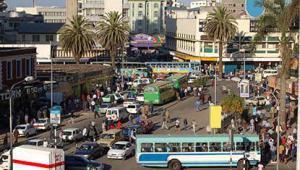The bank and the fund, which works to tackle AIDS, TB and malaria, announced the funding at a Japanese-backed conference on African development in Kenya last week.
The World Bank said it expects to contribute $15bn in the next five years to investments that are critical to universal health coverage, including in areas like pandemic preparedness, nutrition, early childhood development and leveraging the private sector.
The Global Fund’s $9bn commitment for 2017-19 includes $6bn in investments towards the prevention of its core diseases (HIV, TB and malaria), as well as $3bn of investments in improved systems for health, including procurement, data quality and management, and human resources.
The fund’s commitment however is contingent on it receiving a $13bn in financing when its annual replenishment period opens in September.
Jim Yong Kim, president of the World Bank, said that by investing in Africa’s “most prized resource” – its people – the continent’s countries can be more competitive in the global economy.
Studies have shown that investing in healthcare can reap big economic dividends for countries, as well as substantially improving the lives of their populations.
Health forms a significant component of the Sustainable Development Goals, an agenda agreed by world leaders at the United Nations last year that aims to see all nations achieve progress on 17 development areas by 2030.
“A critical part of this commitment is to accelerate progress on universal health coverage – ensuring that everyone, everywhere has the opportunity to live a healthy and productive life,” Kim explained.
A framework intended to support progress towards achieving universal health coverage in Africa by 2030 was also launched at last week’s conference by the World Bank, Global Fund, World Health Organisation, African Development Bank and the government of Japan.
It identifies key areas critical to achieving better health outcomes, including financing, service delivery, vulnerable population targeting and political leadership.
Japanese prime minister Shinzo Abe added that African nations can use the framework to take ownership of their progress towards universal health coverage while the international community can also make use of it in their cooperation.
But funding remains a key issue. Margaret Chan, director-general of the WHO, said that the organisation estimates that an additional $65-115bn in domestic funding could be mobilised annually in Africa over the next 10 years.
In 2014, African countries spent around $126bn in domestic resources on healthcare. In 2001, heads of state of African Union countries pledged to allocate at least 15% of their annual budget to improve the health sector in their countries, and while some nations have progressed towards this goal others lag behind.













